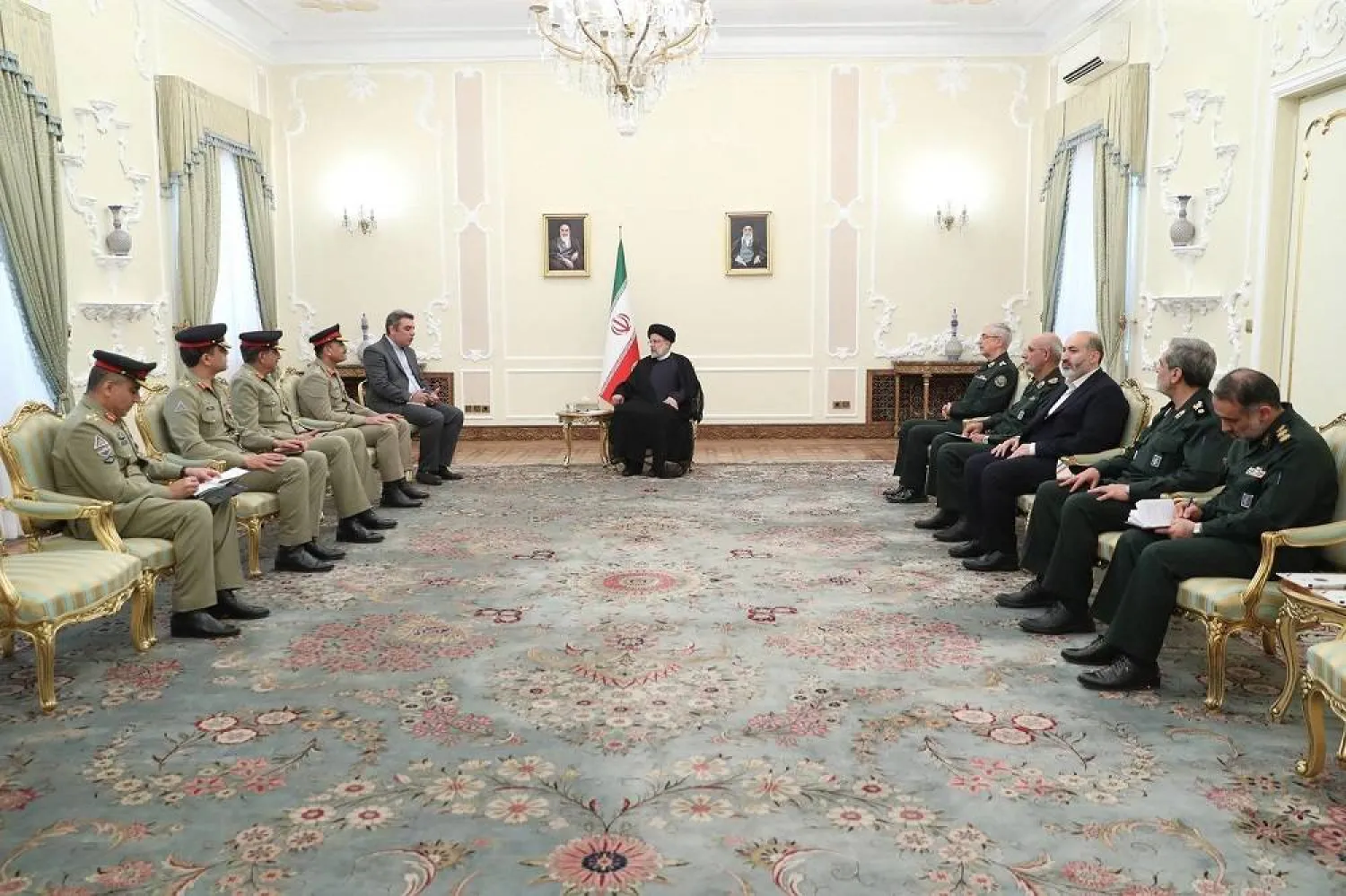Iran's President Ebrahim Raisi on Sunday underlined his country’s strategy to turn security borders with Pakistan into safe and economic zones, state media cited his office as saying.
Raisi received Pakistani army commander Gen. Asim Munir in Tehran.
He said accelerating the implementation of agreements with Pakistan will improve economic and commercial cooperation and political relations between them.
He warned of attempts by “enemies” to sabotage relations between countries in the region, underscoring the need to support cooperation and bilateral and regional ties through Invesment and the exchange of expertise.
In May, Raisi and Pakistani Prime Minister Shahbaz Sharif inaugurated the first border market located in the remote village of Pashin in Pakistan’s southwestern Baluchistan province.
Iran-Pakistani relations have been strained because of cross-border attacks by Pakistani militants along the shared border.
Small separatist groups have been behind a long-running insurgency calling for Baluchistan’s independence from the central government in Islamabad. Pakistani anti-Iran militants have also targeted the Iranian border in recent years, causing further strain.
Also on Sunday Munir held talks with Iranian Chief of Staff General Mohammad Bagheri, Commander-in-Chief of the Armed Forces Abdolrahim Mousavi and commander of the Iranian Revolution Guards Corps (IRGC) Major General Hossein Salami.
The meetings focused on border security and regional defense and security relations.
Munir also met with Iranian Foreign Minister Hossein Amir-Abdollahian, who stressed the need to invest in the economic potential in border regions.
The state-run ISNA news agency quoted Abdollahian as saying that the Pakistani army is playing an effective and positive role in border security cooperation and combating terrorism.









